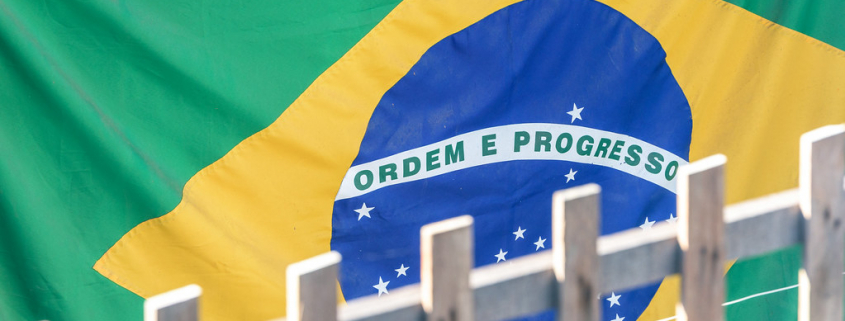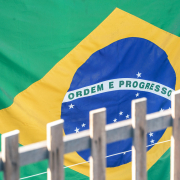The government of the Brazilian state of Rio Grande do Sul, the second largest soybean producer in the country, is implementing a series of security measures to regulate the application of 2,4-D herbicides.
This month, two normative instructions (IN) were published by Luis Covatti Filho (Secretary of State for Agriculture, Livestock and Rural Development) in the Official Gazette.
The first IN (05/2019) introduces the “Risk Knowledge and Responsibility Disclaimer,” which requires rural producers or their representatives to sign the agronomic contract, to farmers aware that in the event of drift, hormonal agrochemicals with active ingredient based on 2,4-dichlorophenoxyacetic acid (2,4-D) cause considerable damage to other sensitive crops.
Granting spraying permits will depend on certain requirements, such as favourable weather conditions and suitable application equipment.
The IN also requires companies to print leaflets containing warnings about these conditions and the risks posed by the drift of chemicals if the requirements are not observed, as well as the launch of training sessions for producers.
The other IN (06/2019) establishes the rules for registering the applicators of hormonal pesticides products, and determines the need for producers to provide information on the application of these products. “Let us create the figure of the applicator. To be registered as such, you will need to present proof of training,” said Filho.
He added that this tool will help technicians to inspect properties. If irregularities are detected in the application, the producer and the applicator will be held liable. Training courses will be held in 23 municipalities where the presence of product residue in crops other than soybean, which is the 2,4-D treated culture, has been confirmed.
A meeting was also held by the Public Prosecutor’s Office with representatives of the Agriculture Secretariat, the Federation of Agriculture of Rio Grande do Sul (Farsul) and a group of herbicide manufacturers. During the meeting, the creation of a R$6 million fund by the companies was discussed, with the aim of effectively regulating the use of 2,4-D.
The money will be used to repair local meteorological stations, pay for multi-residue analysis packages (including 2,4-D) for the entire state, and upgrade the secretariat’s computer systems, to interconnect them and ensure effective monitoring.
Source: Agropages



